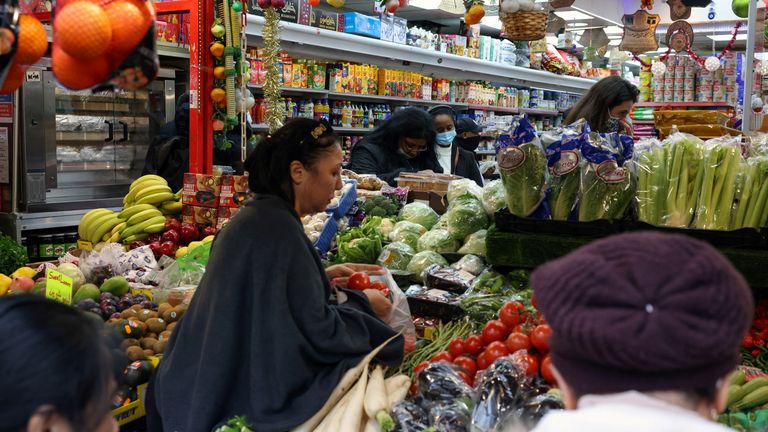Unilever, the consumer goods giant behind brands including Marmite and Magnum ice creams, has signalled that shoppers face further price increases as its own costs continue to rocket.
The company, which said it was to cut 1,500 jobs in a global reorganisation just last month, used the publication of its annual results to estimate that it faced €3.5bn (£2.95bn) of higher input costs over the course of 2022.
Unilever told investors that it had even been unable to fully pass on the additional cost of some core products to customers including grocery chains over the course of the COVID-linked supply chain crisis to date that has seen prices for commodities and shipping soar.
While it is up to stores to set the prices they charge for goods, the company’s remarks clearly place upwards pressure on till prices as supermarket chains are unlikely to swallow stiff increases despite strong competition for customers.
Higher food costs are already a factor behind UK inflation hitting a 30-year high though much of the increase is being driven by surging energy costs.
Bank of England warns of record slide in living standards
Unilever said that it expected €2bn of higher input costs during the first half of its current financial year – easing to a further €1.5bn for the final six months but admitted the situation was difficult to predict.
Despite the challenges, underlying sales growth during 2021 was 4.5% higher – the strongest performance for nine years – and was also aided by an 18% operating margin. That was up from 10% in the previous year.
Net profits rose 9% to €6.6bn.
The firm forecast higher sales, but lower margins, this year as it grapples the inflation problem.
Unilever, which launched and then promptly abandoned a move on GlaxoSmithKline’s consumer health business, said it had listened to investor feedback and ruled out further large acquisitions ahead.
Chief executive Alan Jope, who has been under pressure to raise performance for shareholders, said: “We have engaged extensively with our shareholders in recent weeks and received a strong message that the evolution of our portfolio needs to be measured.”


